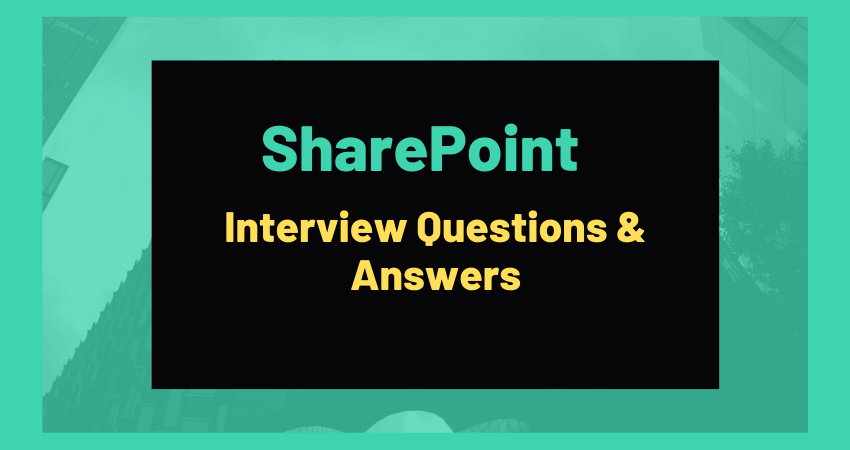In the dynamic landscape of data management and integration, Dataverse stands out as a powerful platform. Whether you’re a seasoned professional or preparing for a Dataverse interview, it’s crucial to be well-versed in the key aspects of this technology. In this comprehensive guide, we’ll explore the top 20 Dataverse interview questions and provide detailed answers to help you ace your next interview.
Table of Contents
Toggle1. What is Dataverse?
Dataverse is a robust data platform within the Microsoft Power Platform that allows users to securely store and manage data used by business applications.
2. How does Dataverse differ from traditional databases?
Dataverse simplifies data management by providing a metadata-driven approach, eliminating the need for complex database structures.
3. What are the key components of Dataverse?
Key components include tables, columns, relationships, and business rules, forming a structured environment for data storage.
4. How does Dataverse ensure data security?
Dataverse employs role-based security, allowing administrators to define access levels for different users based on their roles.
5. Explain the concept of tables in Dataverse.
Tables in Dataverse are analogous to database tables, representing entities that store specific types of data.
6. What are business rules in Dataverse?
Business rules define the logic and calculations applied to data within Dataverse, ensuring consistency and accuracy.
7. How does Dataverse support integration with other Microsoft Power Platform services?
Dataverse integrates seamlessly with other Power Platform services like Power Apps and Power Automate, enabling a unified data experience.
8. What is a Canvas App in Dataverse, and how is it created?
A Canvas App is a custom application created using Power Apps that connects to Dataverse. It’s built visually with a drag-and-drop interface.
9. Explain the significance of relationships in Dataverse.
Relationships define how different tables in Dataverse are connected, facilitating the retrieval of related data.
10. How does Dataverse handle data versioning and auditing?
Dataverse includes native capabilities for versioning and auditing, allowing tracking of changes to records over time.
11. What is a Power Automate flow, and how can it be used with Dataverse?
Power Automate flows automate repetitive tasks. With Dataverse integration, you can create flows to streamline data-related processes.
12. Can Dataverse be used for mobile app development?
Yes, Dataverse supports mobile app development through Power Apps, enabling the creation of responsive and user-friendly applications.
https://informationarray.com/2023/12/07/cracking-the-code-top-20-github-interview-questions-every-automation-tester-should-know/
13. Explain the concept of calculated columns in Dataverse.
Calculated columns derive their values from a formula or expression based on other columns’ values within the same table.
14. How does Dataverse handle data import and export?
Dataverse allows for easy data import and export through tools like the Power Platform’s Dataflow and Data Connector.
15. What is the Dataverse Web API, and how is it utilized?
The Dataverse Web API provides a RESTful endpoint for accessing and manipulating data, offering a programmatic interface.
16. How can Dataverse ensure data consistency in a multi-user environment?
Dataverse employs a transaction model that ensures data consistency, even in scenarios with multiple users simultaneously accessing and modifying records.
17. What are Dataverse Apps, and how are they created?
Dataverse Apps are custom applications built using Power Apps. They are created by defining tables, relationships, and business logic within the Power Platform environment.
18. Explain the purpose of data types in Dataverse.
Data types in Dataverse define the kind of data a column can hold, such as text, number, date, or currency.
https://informationarray.com/2023/12/10/cracking-the-code-top-20-power-automate-interview-questions-and-expert-answers/
19. How can Dataverse be extended using custom code?
Dataverse supports custom code extensions through plug-ins and custom workflows, allowing developers to implement additional functionality.
20. What considerations should be made for scaling Dataverse in large enterprise environments?
For large-scale deployments, it’s crucial to optimize queries, implement caching strategies, and distribute workloads effectively to ensure optimal performance.
External Links
Conclusion: Navigating Dataverse with Confidence
Armed with these top 20 Dataverse interview questions and answers, you’re well-prepared to showcase your expertise in data management and integration. Remember to tailor your responses to your specific experiences and projects, and approach the interview with confidence. Best of luck!









